In this Kyiv kindergarten, children are allowed to raise a ruckus and enact war. Here, educators understand what stress is. They are equipped to help a child overcome emotional tensions and stabilize one’s mood.
Psychologist Inna Horbenko, an expert in our Schools for Democracy programme, recently shared her experience of working at a Kyiv kindergarten at wartime. The following is an abridged translation of her account.
Kindergarten provides shelter to forty families
Our kindergarten had a bomb shelter even before the start of the full-scale Russian invasion. No one believed that war was possible, but there were warnings. We took them seriously, arranged the premises and prepared a small supply of dry food and water.
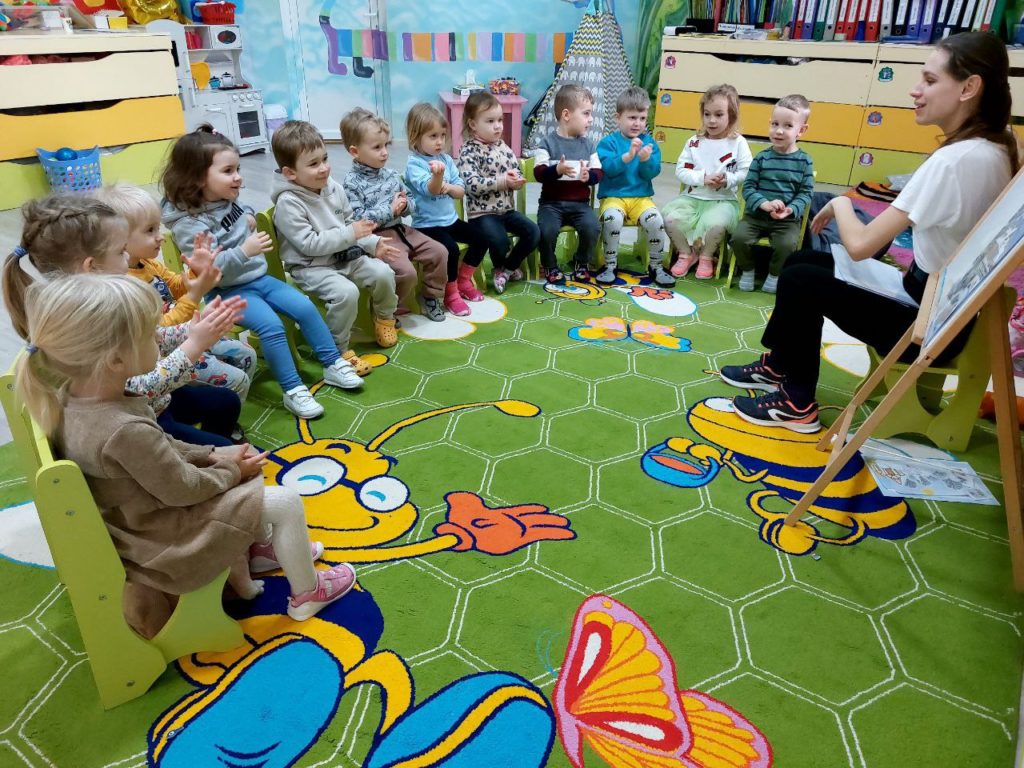
In the first hours of the war, we offered shelter to all parents. And on the very first day, more than 40 families gathered in our building.
This is where our experience of providing psychological help began. We needed to stabilize our own condition and that of the people around us.
A significant part of our time is spent in the bomb shelter now. Air raid alarms can last for hours, so we make sure to offer children a variety of interactive diversions. The most difficult thing was when the lights started to go off. We didn’t have a generator back then.
Psychologist Inna Horbenko
However, the kids quickly picked up a range of games in the dark – for example, shadow theater. For older children, we provide a variety of props. For instance, we might scatter printed letters of the alphabet to be discovered with a flashlight. Then, the task is to think of a word that begins with that letter.
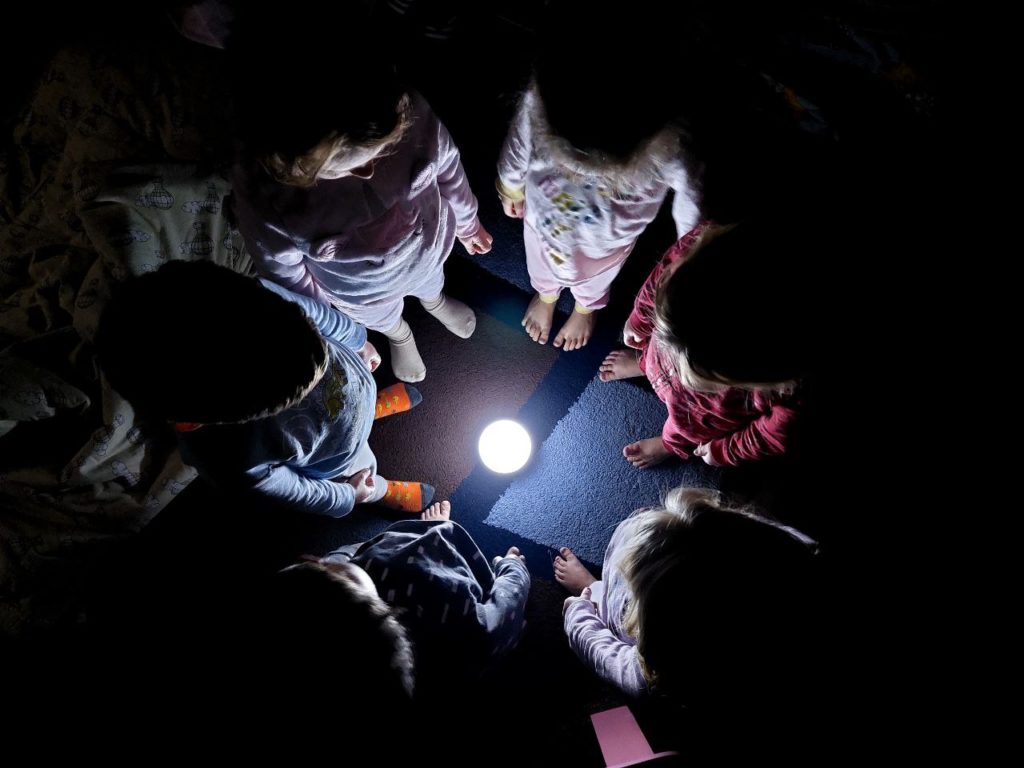
Younger kids love playing “Animal Voices”. The presenter makes a sound, and the participants guess what kind of animal it is. Whoever guesses first becomes the next presenter. All games must be dynamic, because children cannot sit still for a long time.
We have also added breathing exercises to our daily morning meetings, where we all gather in a circle. These grounding movements help stabilize the children’s state of mind. They can also be performed during the day, if necessary.
A child engaged in war play is processing traumatic experiences
When we returned to kindergarten work in May 2022, we made sure to involve the parents in understanding what stress is, how it can manifest itself, and how to help a child cope with it. There were some parents of 3- and 4-year-olds who admitted that they avoid talking about the war, forgoing any explanations.
Children, however, don’t live in a vacuum. They see and hear everything that happens around them; they constantly scan the emotions and facial expressions of adults. When a clearly stressed adult tells a child that everything is fine, her anxiety will only grow. She will lose trust in this adult and learn to mask her own emotions.
Psychologist Inna Horbenko
Instead, one should name the emotion (e.g., fear, sadness) and reassure the child that it can be handled (e.g., I need a little time right now, but then we will play together). Remember: in order to work with children and provide psychological support to them and their parents, it is important to meet one’s own emotional needs as well.
At wartime, playtime inevitably incorporates war
Children living through this war have started to behave more aggressively. They often engage in war play. Caregivers should not be concerned, however: playing is their mode of survival. As long as children play, they feel safe, because only in a safe environment they can express themselves and relieve tension. A child who avoids games altogether, or appears to be emotionless, is far more worrisome.
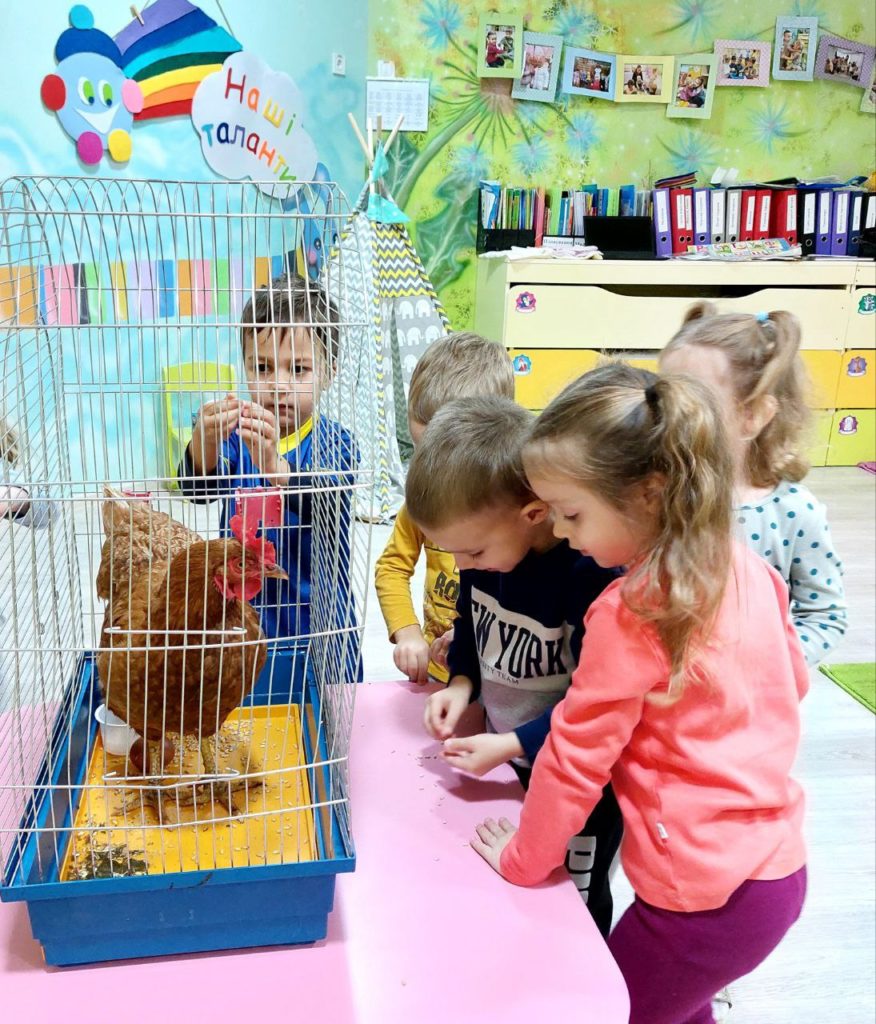
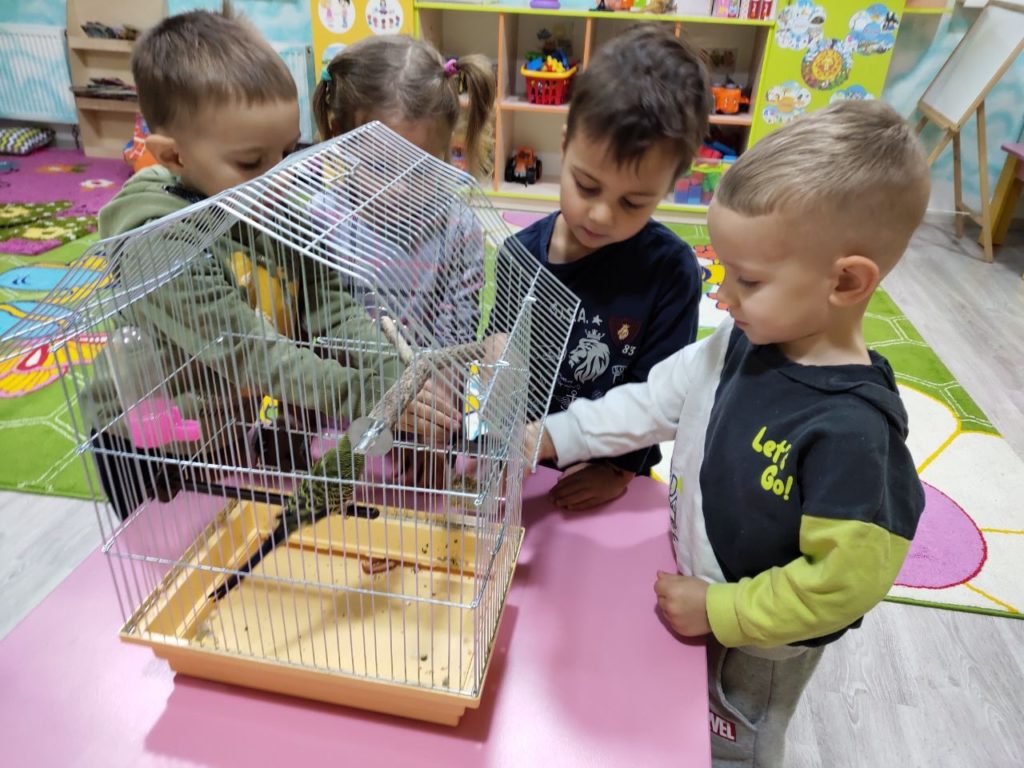
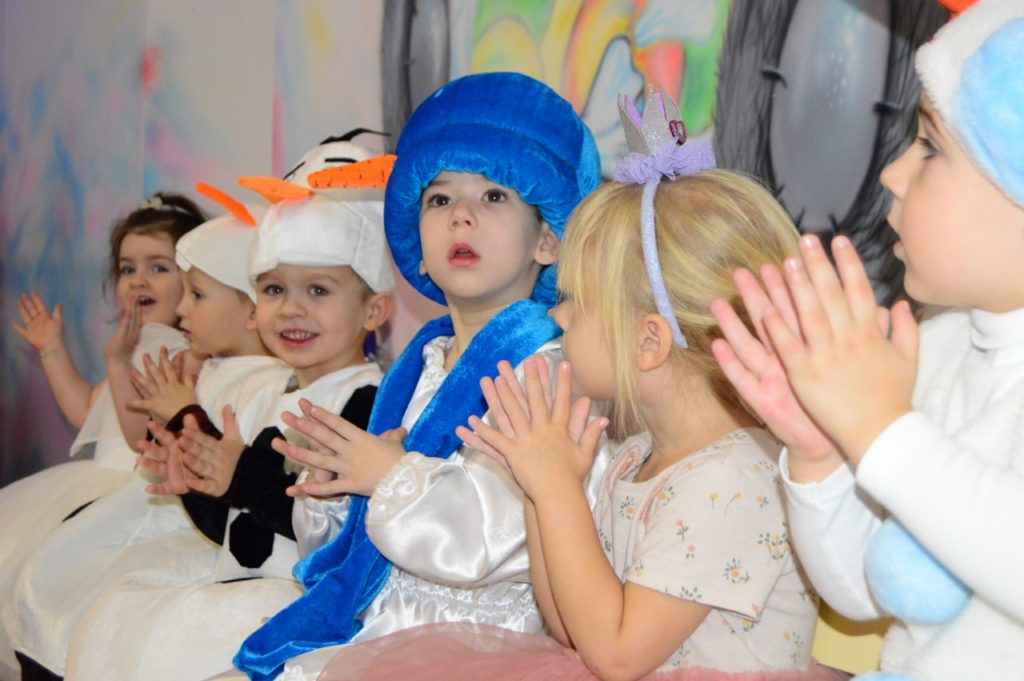
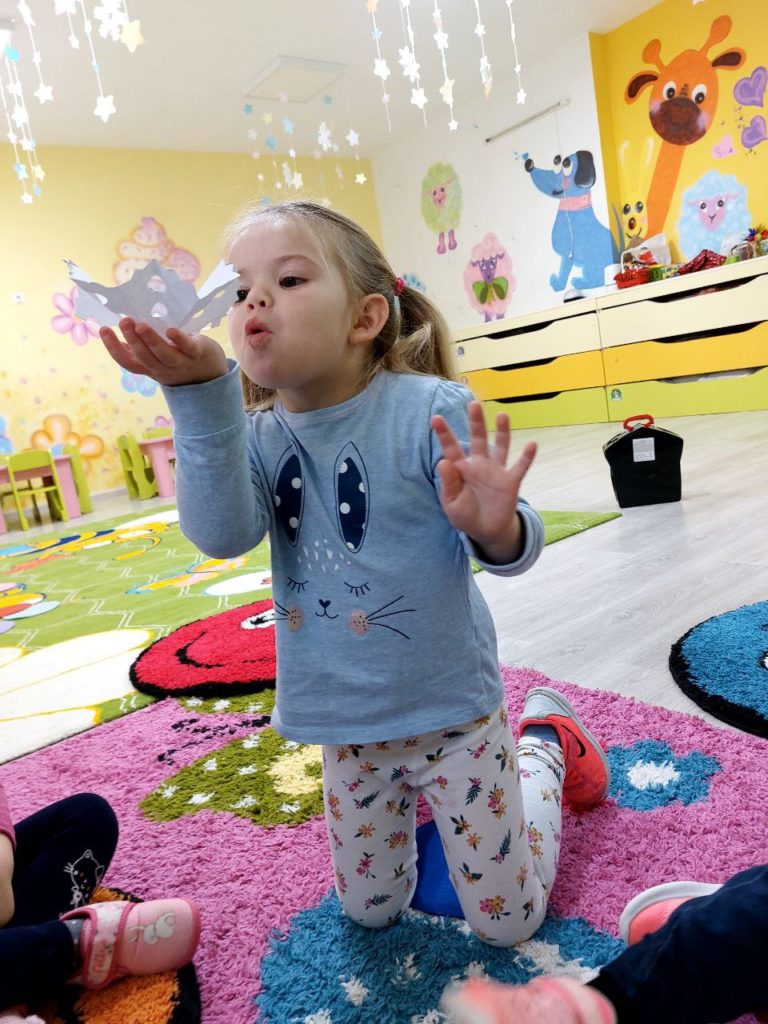
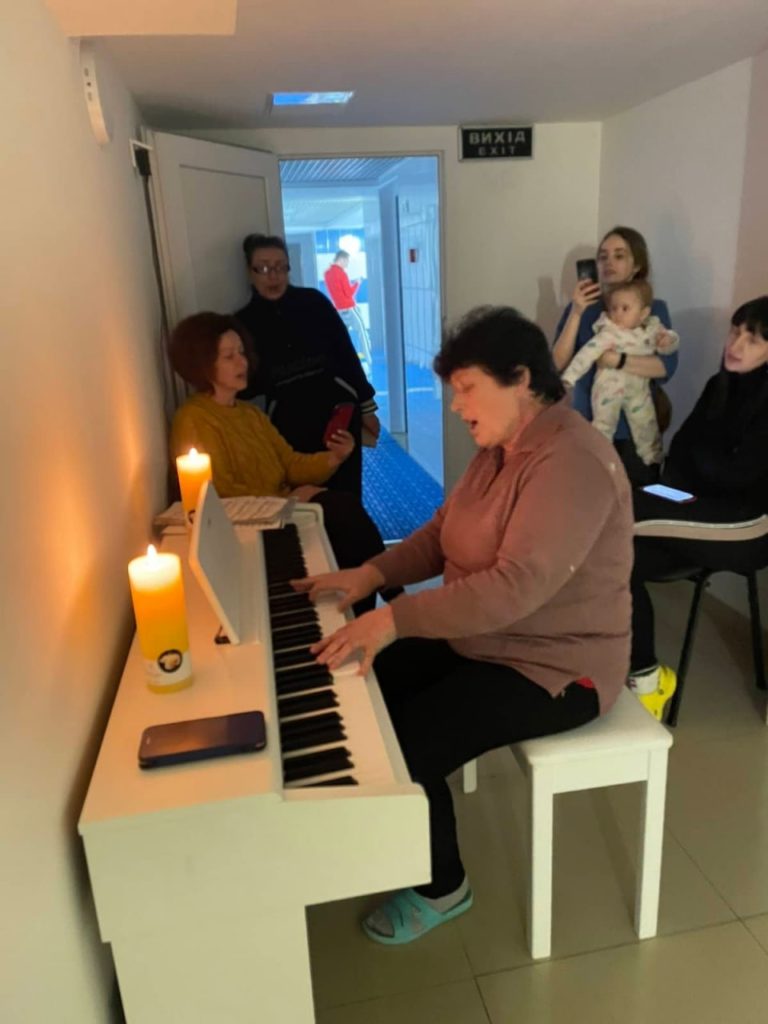
Adults can help children distinguish between emotion and action. For example, it is normal to feel angry, but one should not harm oneself or someone else. As part of tackling this distinction, we have introduced fun brawling in our kindergarten. Children can fight with pillows (under supervision and according to certain rules: for instance, never hit the head) or they can improvise dog fights (growl, quarrel, then wag and reconcile). This is a language they can understand: the language of a game, of a fairy tale.
Psychological support videos
This summer, as an emergency response, we prepared a series of videos to guide adults through supporting children at wartime. Recorded in Ukrainian, the series is freely available on YouTube. Find more information about these videos here.